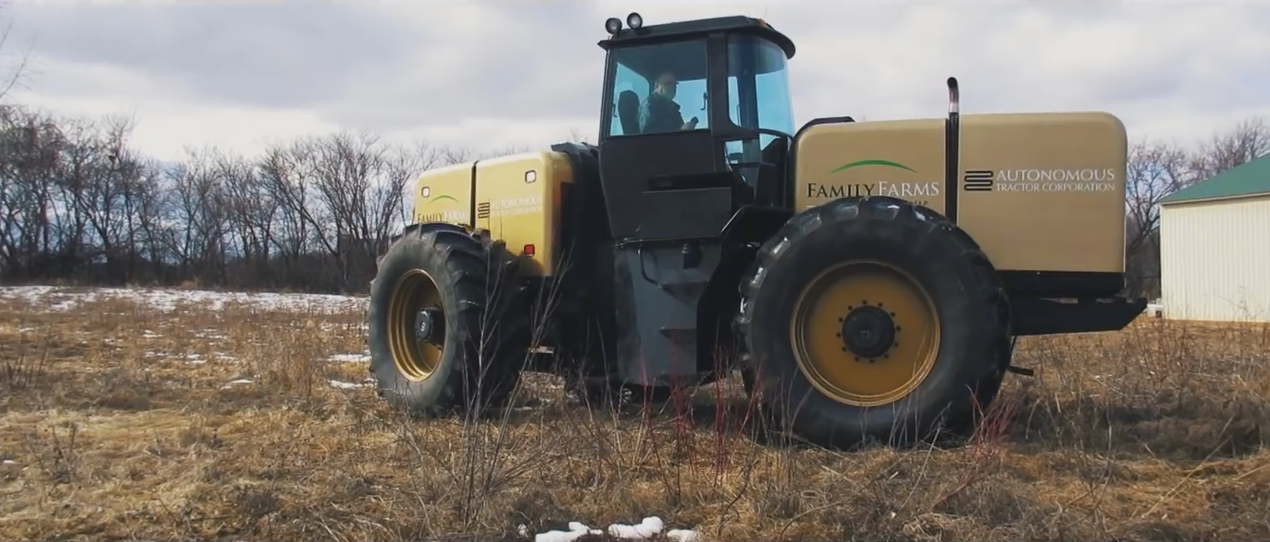
Autonomous Tractor boss says new technology can help farmers halve their costs
The Autonomous Tractor Corporation is close to launching a range of new technologies which it says will help farmers halve their equipment costs.
In exclusive comments to Robotics and Automation News, Kraig Schulz, CEO of ATC, says the company’s latest eDrive system would cost between $250 and $500 per horsepower.
This is approximately half the cost of a new tractor, which costs anywhere between around $750 and $1,000 per hp.
Schulz says: “The system costs will obviously depend on configuration, horsepower, and so on, but we can have a retrofit eDrive system for a 325 hp sprayer done, installed, ready to go for about $75,000 which is a little less than having the whole thing rebuilt with hydrostatic drives – about $80,000.
“And the electric drives are expected to last at least five to 10 times longer. You can also look at the 400 hp version we did on the big, articulated 8760 Deere tractor.
“That, installed and all ready to go is about $225,000 with new engines and everything. So we expect something between $250-500 / hp depending on if we need to replace the engine, and so on. Compare that to a new tractor costing somewhere between $750-1,000 / hp. It is obviously hard to be precise here because of all of the variations but hopefully this gives you a starting point.”
ATC develops a range of automation technologies for agriculture, such as autonomous sprayers.
Schulz says ATC’s approach to technology for agricultural machinery that many other companies is distinct from other companies.
“We are taking a somewhat different approach than what seems to be emerging from the big companies,” he says.
“First, we are using an electric drivetrain to reduce cost and fuel consumption while improving safety and reliability. You can see one of our electric motors driving the wheel of a Deere self-propelled sprayer. We are in the final throes of finishing up that and a couple of other units that we will deliver to our customers here in the coming few months.
Schulz adds that while he believes there will be greater levels of automation and autonomy, driverless tractors are not one of the company’s priorities.
“We think that autonomous, self-propelled implements – like our automated sprayer and even tillage equipment – are the future, not autonomous tractors,” says Schulz.
“So we are working more in that direction because it makes the cost so much more attractive and really simplifies the problem of control.”


